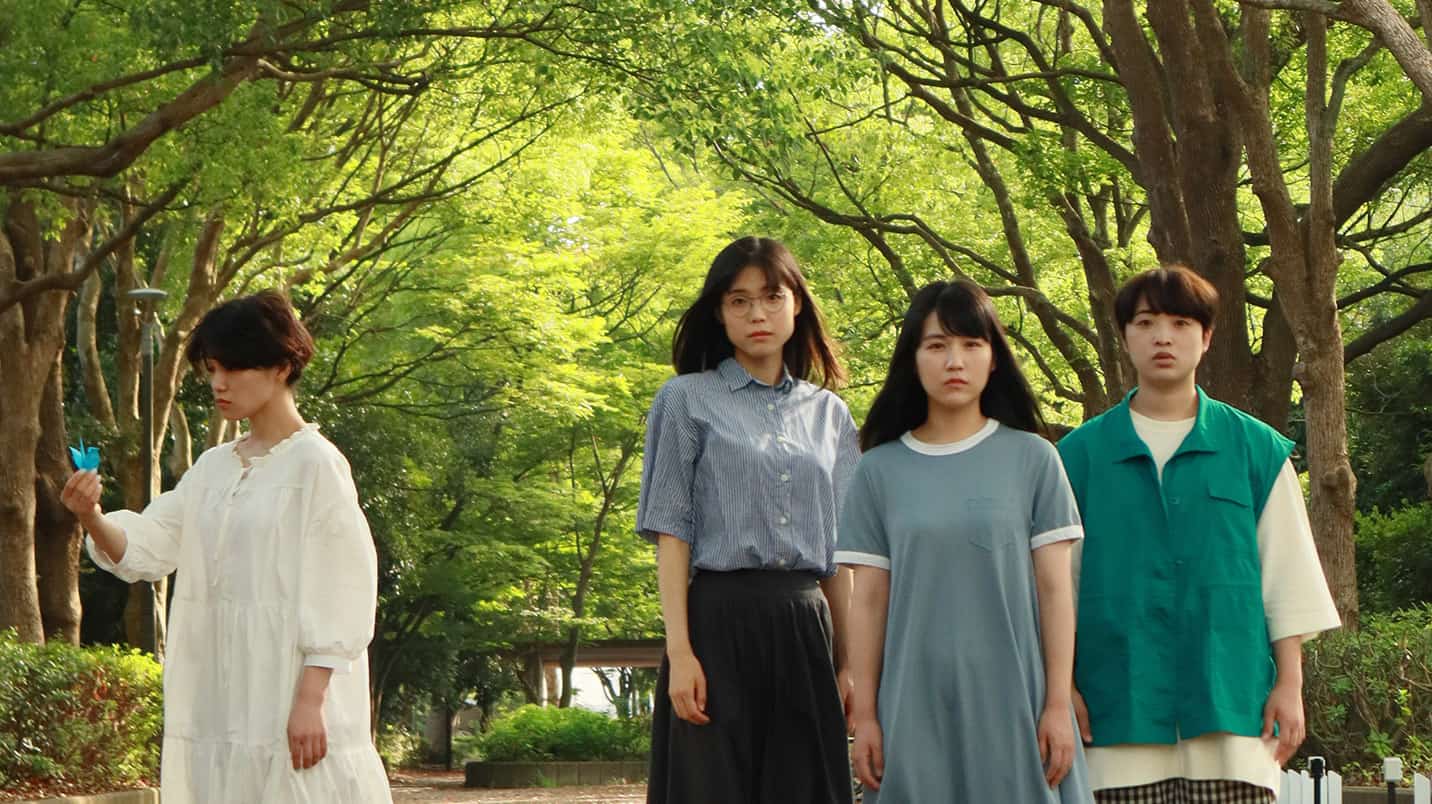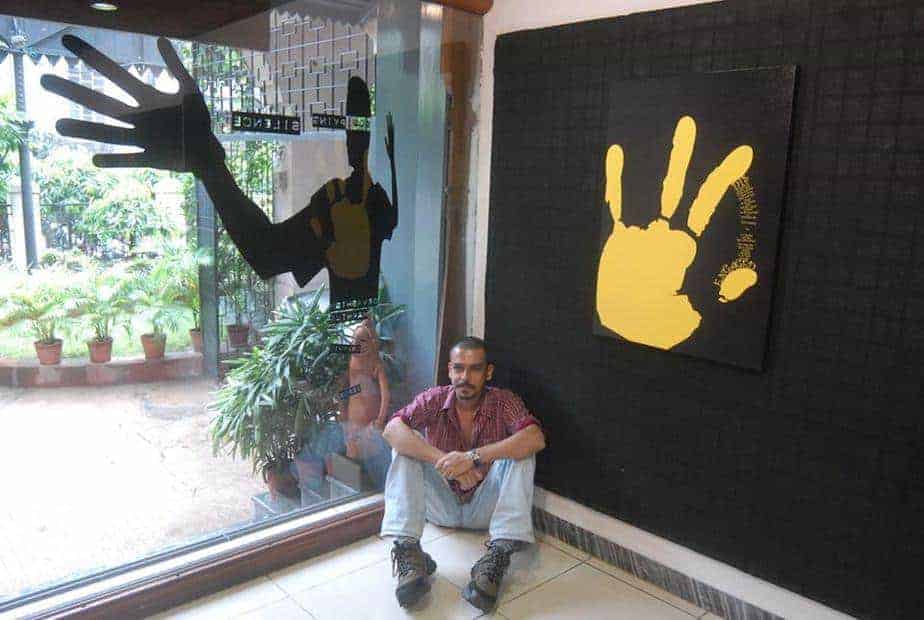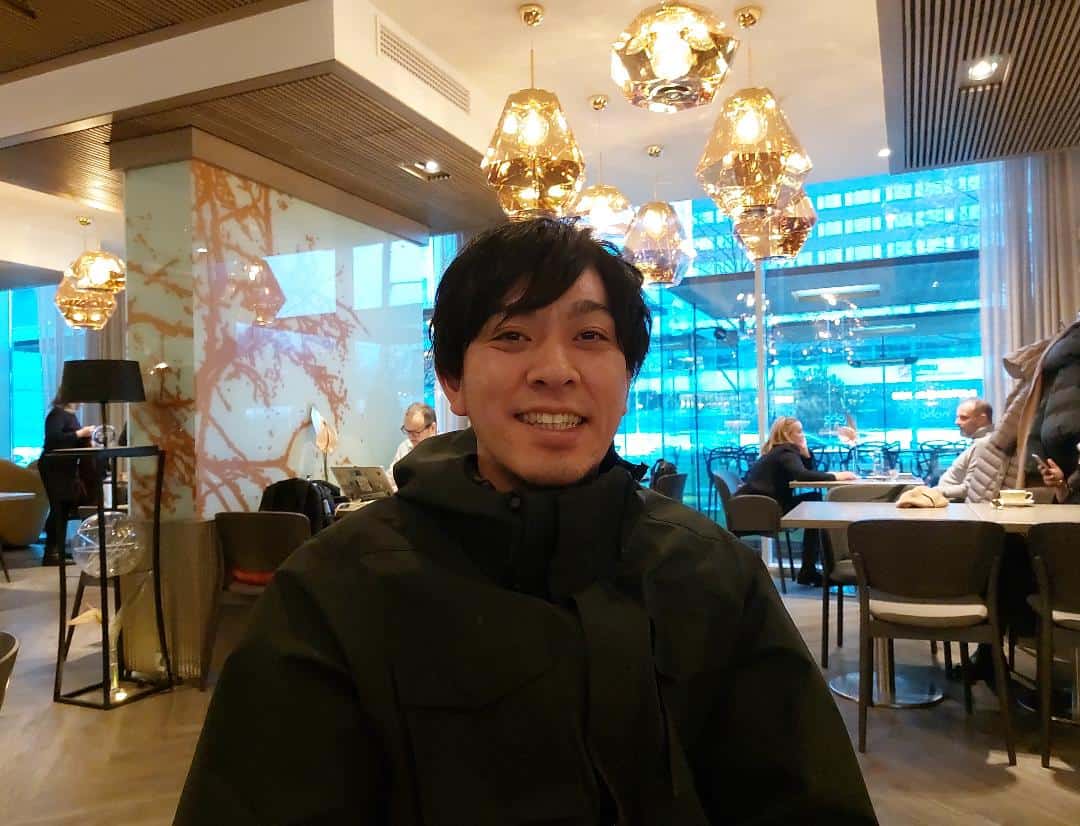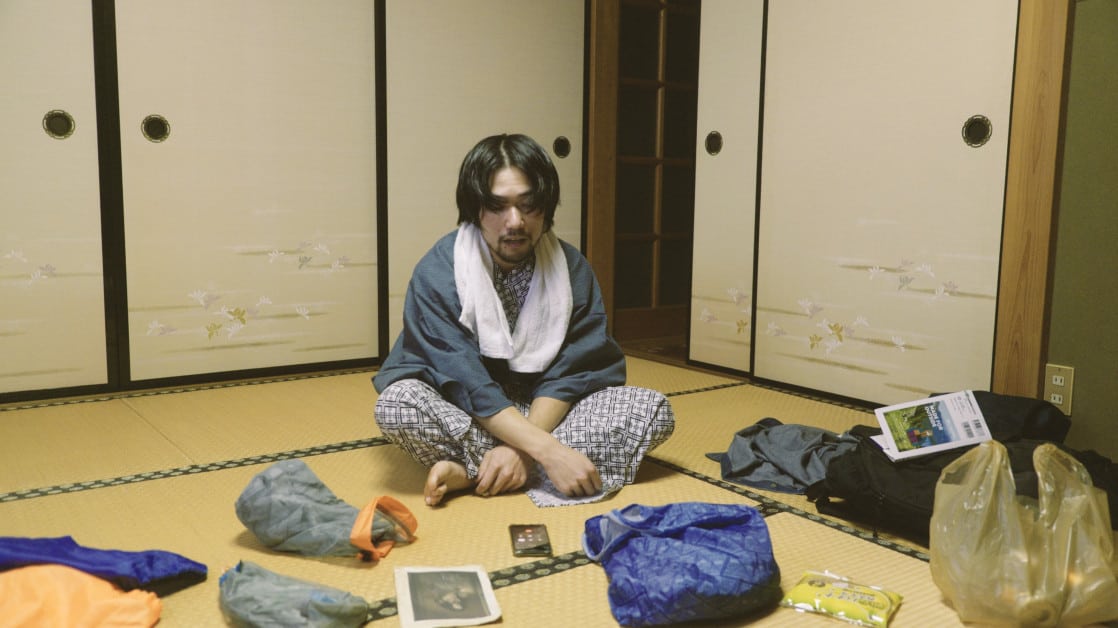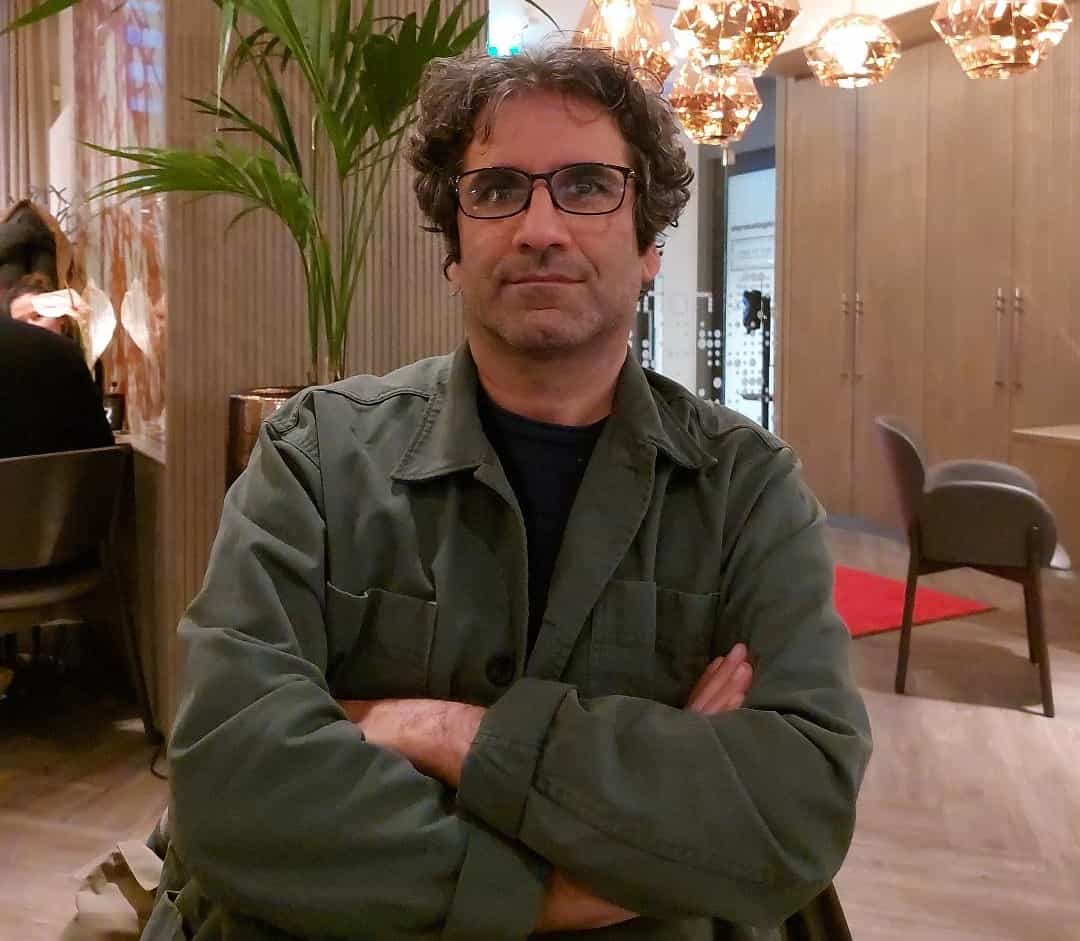Yuki Hatayama is a producer, actor and cinematographer, known for Sense Of Sin (2018), The Shinjuku Five (2019) and The Viper's Hex (2018).
On the occasion of his short film “Sense Of Sin” screening in Japan Film Fest Hamburg 2019, we talk with him about God, the concept of Sin, his childhood memories that served as an inspiration for the film, the construction of the creature, the horror genre and other topics.

How did you decide on the title ‘Sense of Sin'? Was there anything else you wanted to convey using the title?
I wanted to include religious meaning in the title but not too much. I'm basically skeptical about God and religion. Noh story titled “Nue” provided inspiration to one part of this film. Nue is the one of the mythical creatures (Youkai) in Japan. In the Noh story, Nue regrets its past behavior and asks forgiveness from Buddhist God for its sins. I love Youkai, also I love Nue. So, I was wondering about this Noh story when I read it for the first time. I thought “Did Nue really hope for forgiveness from God? “. Buddhism has a profound effect on Noh stories. It stuck in my mind that Nue seemed to be forced to be a stray sheep. And I thought “If it is true that Nue hoped for forgiveness, what is the real forgiveness for a person with a sense of sin? “. I tried to put myself in Nue's shoes.
Sometimes, when I'm in bed at midnight, I can't sleep and can't stop thinking about my past foolish behaviors and faults, then my brain is filled with shame and a sense of sin. I tried to link this ordinary sense of sin to Nue. And I decided to make the film with the sense of sin hiding in human's heart as a theme. To a greater or lesser degree, all of the people in the world have a sense of sins and their memories. I thought that it was a good theme, because it is a universal feeling.
Is there god in our world? I don't tell my answer to audiences. I think there are answers as many as the number of audiences. By the way, when I write this title, I use《O》 with capital letters, like “Sense Of Sin”. I know it's not correct grammar, but I have a reason. Please check initial letters of each word. Then you can see a rescue signal from a stray sheep.
How did you come up with the story? Is it complete fiction or a mix of fiction and real-life incidents?
The story is completely fiction, but I got ideas from my experiences and memories in my childhood. One of the big elements is my deceased little sister. She had cancer and died when she was a baby. I could't treat her kindly because I was jealous of her. When she died, I could not cry. Now I regret it. If she is still alive, what would we be talking about? What kind of woman would she be? But I don't think about her all the time in my life. Out of nowhere, I suddenly remember her, like the man in the film.
About the sad accident in the childhood in the film, I got the idea from an accident in my childhood. When I was pretending to fight with my friend, I stabbed his nose with a bamboo stick by mistake. He got a terrible nosebleed and he went back to his house with his caregiver. I couldn't apologize to him and just stood stunned all alone. After that, his life was not in danger and we played again. But if the situation did become worse, it would have been horrible. If an innocent action had such a consequence, I feel there is no God.
Any specific thoughts about how you came up with the costume of the creature that is depicted?

The creature was designed in the motif of the Youkai named Nue. And also the mask of the creature in the film was made based on a Noh mask used in a play titled “Nue”. This mask was made by SFX artist Atsushi Omori. Mr.Omori understood my request exactly and made a very scary mask using his great skill. The headpiece of the creature was inspired by a Noh headpiece. I found the photo of a headpiece made by bird's feathers which runway models wore in a fashion show. And then, I thought that bird's feather can represent the curve of Noh and Kabuki headpiece. The clothes and the chain entangled on the creature's body express his bound heart. It was stained with deep dark blue and damaged, to express sludge from the bottom of the river and dark feelings filled with melancholy and despondency which an exile feels. The headpiece and the clothes were made by my wife. She made it very sincerely and I was impressed with her talent when I saw the finished product. Thanks to the great crew, the cool and scary creature was born.
From childhood, the short directly goes to adulthood. Any reason why the teenage of the boy was not included?
There are two reasons. First, the project had low budget. Second, I felt that there is no specific event to show to the audience from his teenage. Actually, he didn't always think about the past accident and the dead girl during his life. But unexpectedly, he suddenly thought of it. His sense of sin disturbed his peace of mind. It was like that waves made a sludge float from the bottom of the river. Then memories went down to the bottom of his heart again. He went back to his boring daily life. And it repeated. I wanted to show a moment when he had to face his sense of sin when he was nearly myg age. So, I didn't think to show his teenage. In this film, I put him in the suffocating atmosphere that I sometimes felt in my daily life in Tokyo. I was feeling depressed like that colors of a town lost in its saturation. The cause was also that he had not been who he wanted to be, even though he grew up to be an adult.
While watching, one has the feeling that much of the story takes place during twilight. Is there any specific reasons for that?
In Japanese, there is a word “Oumagatoki” expressing twilight. It means we are likely to come across creatures and ghosts during twilight, because twilight connects day to night. Humans are day walkers, on the other hands creatures are night walkers. So, both of them meet each other during twilight. I grew up in the countryside. Twilight in a countryside in Japan evokes this word. When I was walking on a deserted country road during twilight, I sometimes felt a creepy atmosphere. I got the feeling that I encountered something unknown. Twilight was a very attractive time for me. But also I felt loneliness when it was getting dark, because I had to stop playing, say goodbye to my friends and go home. This feeling is similar to nostalgia. I often remember my childhood at dusk. I feel I can't go back to the good old days, then I feel sadness. So, I used many twilight scenes in this film to express these emotions and feelings like the way he strayed into the netherworld before he knew it.

The background score was quite critical for this short. Was there any specific instructions given to the music director?
Namiko Mori, a composer of this film, has done a marvelous job. At first, I gave her some images to create the score, told her what I wanted to express in this film and explained the intentions and the emotion of each scene. I wanted to use a score like Kagura's music. Kagura is a type of traditional Japanese Shinto play that uses music, dance and mask and is based on ancient stories like Noh play. Its music has heavy Japanese drums beat and it shakes my heart. I often saw Kagura play in my childhood and I really loved it. I sent her YouTube links of Kagura play for reference for the opening score. She liked Japanese musical instruments too, she understood my request perfectly and used massive sounds of Japanese drum for the score. About another score, I asked her to use singing of Japanese folk song which provides a very mysterious atmosphere. I needed songs which had both Japanese exoticism and modernity. She made it and it touched my heartstrings so much. Furthermore, we talked about song's detail and modulated it more precisely to match it completely with the scenes and character's emotions. She listened to my opinions with an open mind and incorporated my requests in the song with her great professional skill and feel for music. Working with Namiko was wonderful and so creative, I really enjoyed it.
What do you think about the future of the horror genre? Are there any themes or types of stories which can be told better using the horror genre?.
This film is does not fully belong to the horror genre, actually I made this as a human drama. But of course, I love horror so much. I'm always excited when I find new interesting horror movies. The future of the horror genre is glorious, I think. Horror movies are absolutely essential entertainment for the people who tend to feel depressed in their life, like me. The horror genre is broad-minded. We can include any theme in the horror movie. A social problem, art, comedy, true nature of humans, emotions and more. It is also good to strive for ultimate fear. No matter what theme, horror films can always give us entertainment. Any theme and story is OK. But I think it's important to deliver a strong body blow with full effort. I mean, I should not forget rock'n'‐rolls, punks and metals spirit when I create something, to be an artist.



